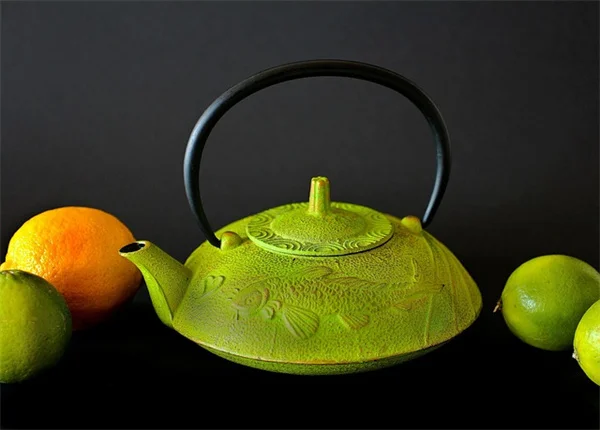Do acid reflux medications cause dementia? The short answer is: we don't know for sure yet, but a 2023 study found that people taking proton pump inhibitors (PPIs) for more than 4.5 years had a 33% higher dementia risk. Before you panic, let me break this down for you in plain English. The research shows a connection, not proof that PPIs like Nexium or Prilosec actually cause memory problems. Here's what we do know: about 1 in 4 study participants using these heartburn meds long-term showed increased risk, but experts say it could just be coincidence since older adults (who are more likely to develop dementia) also use these medications most frequently. The good news? There are alternatives if you're concerned, which we'll explore together in this article.
E.g. :Venus Williams' Fibroid Struggle: Why Women's Pain Gets Dismissed
- 1、That Heartburn Pill Might Be Messing With Your Brain
- 2、Why Would Heartburn Meds Affect The Brain?
- 3、What Can You Do If You're Worried?
- 4、The Bottom Line (Without Saying "Bottom Line")
- 5、The Hidden Side Effects Nobody Talks About
- 6、Natural Alternatives Worth Trying
- 7、The Insurance Company Perspective
- 8、Real People, Real Stories
- 9、FAQs
That Heartburn Pill Might Be Messing With Your Brain
Wait... My Antacids Could Affect My Memory?
Let me tell you something that'll make you spit out your morning coffee - researchers found that long-term use of those little purple pills (you know, the acid reflux meds) might be linked to dementia. Now before you panic and flush your meds down the toilet, let's break this down like we're chatting over lunch.
The scoop: A 2023 study in Neurology tracked over 5,700 adults for nearly six years. Here's the kicker - folks popping PPIs (that's proton pump inhibitors like Nexium or Prilosec) for more than 4.5 years had a 33% higher dementia risk. That's like going from 19 cases per 1,000 people to 24 cases. Not huge, but enough to make you go "hmm..."
What Exactly Did The Study Find?
Picture this: researchers divided participants into four groups like sorting Halloween candy:
| Group | PPI Usage | Dementia Cases |
|---|---|---|
| Team Clean | Never took PPIs | 19 per 1,000 |
| Short-Termers | Under 2.8 years | No significant change |
| Middle-Ground | 2.8-4.4 years | No significant change |
| Long-Haulers | Over 4.4 years | 24 per 1,000 |
Now here's the million dollar question - are the pills causing dementia or is this just coincidence? Great question! The truth is, we don't know for sure yet. It's like seeing umbrellas when it rains - one doesn't necessarily cause the other.
Why Would Heartburn Meds Affect The Brain?
 Photos provided by pixabay
Photos provided by pixabay
The Nutrient Connection
Dr. Jey, a smart cookie who wasn't involved in the study, dropped some knowledge on us. PPIs might be party crashers when it comes to nutrient absorption. Specifically, they could:
- Lower vitamin B12 levels (your brain's favorite snack)
- Increase beta-amyloid proteins (the troublemakers in Alzheimer's)
But here's the plot twist - Dr. Alesiani points out that 55% of folks over 65 take PPIs. Since dementia mostly hits after 65, it's like saying "most people who get dementia also wear socks." Correlation ≠ causation, my friends!
The Age Factor
Let's be real - as we get older, our medicine cabinets start looking like pharmacy displays. Older adults often juggle multiple health issues requiring various meds. Some of those other prescriptions might be the actual culprits behind increased dementia risk.
Think of it this way - if someone takes PPIs, blood pressure meds, cholesterol drugs, and arthritis pills, pinning the blame solely on the heartburn medication is like blaming the bass player when the whole band is off-key.
What Can You Do If You're Worried?
Medication Alternatives
If this study has you side-eyeing your pill organizer, here are some options your doctor might suggest:
H2 Blockers: These are like PPIs' younger cousins - think Pepcid (famotidine). They reduce acid differently and might be gentler for long-term use.
Old-School Antacids: Tums or Mylanta can be quick fixes. They're like putting out small kitchen fires rather than rebuilding the whole house.
 Photos provided by pixabay
Photos provided by pixabay
The Nutrient Connection
Now for my favorite part - simple changes that don't cost a dime:
- Ditch the midnight snacks (your stomach needs beauty sleep too)
- Loosen those tight pants (no judgment - but your stomach will thank you)
- Keep a food diary (because mystery heartburn is the worst detective story)
Here's a pro tip: acidic foods don't affect everyone the same. My uncle can drink coffee like water, but one slice of tomato gives him hell. Know your triggers!
The Bottom Line (Without Saying "Bottom Line")
Should You Freak Out?
Nope! But should you have a chat with your doctor about long-term PPI use? Absolutely. Especially if you've been taking them for years like they're Tic Tacs.
Remember - this study shows a link, not proof. It's like noticing people with umbrellas get wet - maybe because they're the ones brave enough to go out in the rain!
Your Action Plan
If you're concerned, here's what I'd do:
- Check how long you've been on PPIs (mark your calendar if needed)
- List your symptoms and triggers (be your own health detective)
- Make an appointment to discuss alternatives (doctors love these conversations)
And hey, if you forget to do these things... well, let's hope it's just normal forgetfulness and not... never mind. Too soon? (That's my attempt at medical humor - I'll stick to my day job.)
The Hidden Side Effects Nobody Talks About
 Photos provided by pixabay
Photos provided by pixabay
The Nutrient Connection
You know how when you buy a used car and discover three months later the AC only blows hot air? PPIs might have some sneaky side effects too that don't get enough attention. Let me tell you about the other stuff researchers are finding.
Bone health alert: Long-term PPI use could be leaching calcium from your bones. A 2022 study showed folks taking these meds for over a year had 25% higher fracture rates. That's like trading heartburn for a broken hip - not exactly the upgrade we wanted!
The Gut Microbiome Connection
Here's something wild - your stomach acid actually serves as bouncer, keeping bad bacteria out of your gut. When you lower acid production long-term, you're basically firing the bouncer and letting anyone into the club.
Researchers at UCLA found PPI users had significantly different gut bacteria compared to non-users. Some scientists think this might explain why these meds are linked to increased infections like C. diff. Your gut's like a delicate ecosystem - mess with one thing and suddenly you've got bacterial party crashers everywhere!
Natural Alternatives Worth Trying
Kitchen Cabinet Remedies
Before you reach for the pill bottle, your kitchen might hold some surprising solutions. My grandma swore by these - and modern science actually backs some of them up!
Aloe vera juice: Not just for sunburns anymore! A 2020 study showed it can reduce acid reflux symptoms by up to 40%. Just make sure you get the inner fillet kind that's safe to drink - nobody wants to explain why they're chugging sunscreen at dinner.
Chewing gum trick: This one's so simple it's almost silly. Chewing sugar-free gum for 30 minutes after meals increases saliva production, which helps neutralize acid. It's like giving your stomach a little helper team!
When To See A Professional
Now, I'm not saying you should cancel your doctor and start mainlining ginger tea. Some situations absolutely need medical attention:
- If you're waking up choking on acid more than twice a week
- When over-the-counter meds stop working
- If you're losing weight without trying (and not because you finally quit late-night pizza)
Here's a thought - could stress be your real problem? Absolutely! Stress increases stomach acid production like crazy. That's why your heartburn always flares up during tax season or family gatherings. Sometimes the best treatment isn't in a pill bottle - it's in learning to chill out.
The Insurance Company Perspective
Why Your Doctor Might Push PPIs
Ever wonder why docs seem to hand out PPI prescriptions like candy? There's actually some messed-up logic behind it. Insurance companies often prefer paying for PPIs over covering more expensive tests or procedures.
It's cheaper for them to keep you on $10/month pills than pay for an endoscopy that might cost $2,000. The system's basically incentivizing the "just take this pill" approach rather than finding root causes. Makes you think, doesn't it?
The Cost Comparison Over Time
Let's break down the numbers in a way that'll make your wallet hurt:
| Approach | First Year Cost | 5 Year Cost | Potential Side Effects |
|---|---|---|---|
| PPIs Only | $120 | $600 | Dementia risk, fractures, infections |
| Lifestyle Changes | $0-$200 (for nutritionist) | $0-$1,000 | Occasional cravings |
| Diagnostic Testing + Targeted Treatment | $2,000-$3,000 | $2,000-$5,000 | Procedure risks |
See how the cheap option now could cost way more later? It's like choosing between fixing a leaky roof now or waiting until your whole ceiling collapses. The smart money's on finding the real problem early!
Real People, Real Stories
Success Stories Without Meds
My neighbor Dave was on PPIs for 8 years before trying something radical - he actually followed his doctor's diet advice. After 3 months of cutting out late-night eating and reducing coffee, he was off meds completely. Now he brags about it at every block party like he discovered gravity.
The key? He didn't just stop cold turkey - he worked with his doc to taper off slowly while making lifestyle changes. You wouldn't quit the gym by suddenly lifting 300 pounds, right? Same principle applies here.
When Meds Are Actually Needed
Let's be fair - some people genuinely need these medications. My aunt has Barrett's esophagus, a serious condition where PPIs are literally protecting her from cancer. For her, the benefits clearly outweigh the risks.
The difference? She gets regular check-ups to monitor for side effects and her doctor constantly reevaluates if she still needs them. That's the smart way to use these drugs - as actual medicine rather than a permanent band-aid.
So here's my takeaway after digging into all this: PPIs aren't evil, but they're not candy either. Like most things in life, the truth is somewhere in the middle. The real danger isn't the medication itself - it's using it forever without asking questions or considering alternatives.
E.g. :Long-Term Use of Certain Acid Reflux Drugs Linked to Higher Risk ...
FAQs
Q: How strong is the link between PPIs and dementia?
A: Let me put this in perspective - the study found that for every 1,000 people taking PPIs long-term (over 4.4 years), there were 24 dementia cases compared to 19 cases among non-users. That's a 33% increased risk, but before you swear off your meds, remember this: correlation doesn't equal causation. We doctors see this kind of data all the time - it's like noticing that people who own umbrellas get wet more often. Does that mean umbrellas cause rain? Of course not! The researchers themselves say more studies are needed to understand if there's a real cause-and-effect relationship here.
Q: Why might acid reflux drugs affect brain health?
A: Here's where it gets interesting - experts have a couple theories about the PPI-dementia connection. First, these medications might interfere with how your body absorbs vitamin B12, which is like brain food. Second, they could potentially increase beta-amyloid proteins - the sticky gunk that gums up brains in Alzheimer's patients. But (and this is a big but) these are just educated guesses right now. As my colleague Dr. Alesiani points out, most dementia patients are over 65, and guess what? That's exactly the age group most likely to be popping PPIs like candy. Coincidence? Maybe!
Q: What are safer alternatives to proton pump inhibitors?
A: If this study has you worried (and I get it - your brain is kind of important), here's some good news: you've got options. H2 blockers like Pepcid work differently and might be better for long-term use. Old-school antacids (Tums, anyone?) can handle occasional flare-ups. But here's what I really recommend: try simple lifestyle changes first. Skip late-night snacks, loosen those tight pants (seriously, your stomach will thank you), and keep a food diary to spot your personal triggers. About 40% of my patients find they can cut way back on meds just by making these tweaks!
Q: Should I stop taking my acid reflux medication immediately?
A: Whoa there - don't flush your meds yet! As your virtual doctor friend, here's my prescription: if you've been on PPIs for years, don't panic, but do make an appointment to chat with your actual doctor. We can review your specific situation, maybe run some tests, and explore alternatives if needed. Cold turkey quitting could leave you with worse problems than potential memory issues down the road - like serious acid damage to your esophagus. Let's be smart about this, okay?
Q: How can I reduce my dementia risk if I need to take PPIs?
A: Great question! While we're figuring out this PPI puzzle, focus on what we know helps brain health: stay socially active (join a book club, call your grandkids), eat your veggies (especially leafy greens), get moving (even walking counts), and challenge your brain (sudoku, new hobbies, you name it). If you're really concerned, ask your doctor about checking your B12 levels - we can supplement if needed. Remember, dementia risk involves many factors, and your heartburn meds are just one small piece of a much bigger picture.

